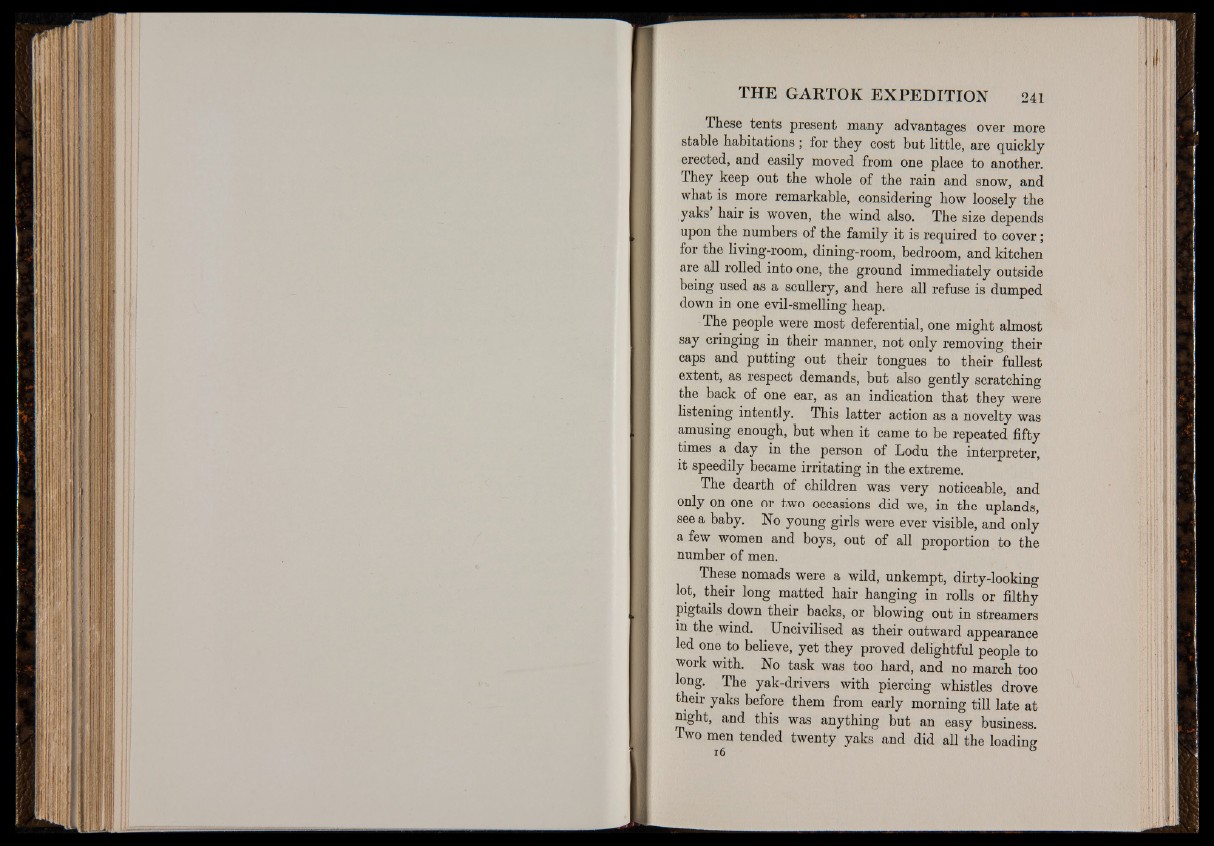
These tents present many advantages over more
stable habitations; for they cost but little, are quickly
erected, and easily moved from one place to another.
They keep out the whole of the rain and snow, and
what is more remarkable, considering how loosely the
yaks hair is woven, the wind also. The size depends
upon the numbers of the family it is required to cover;
for the living-room, dining-room, bedroom, and kitchen
are all rolled into one, the ground immediately outside
being used as a scullery, and here all refuse is dumped
down in one evil-smelling heap.
The people were most deferential, one might almost
say cringing in their manner, not only removing their
caps and putting out their tongues to their fullest
extent, as respect demands, but also gently scratching
the back of one ear, as an indication that they were
listening intently. This latter action as a novelty was
amusing enough, but when it came to be repeated fifty
times a day in the person of Lodu the interpreter,
it speedily became irritating in the extreme.
The dearth of children was very noticeable, and
only on one or two occasions did we, in the uplands,
see a baby. No young girls were ever visible, and only
a few women and boys, out of all proportion to the
number of men.
These nomads were a wild, unkempt, dirty-looking
lot, their long matted hair hanging in rolls or filthy
pigtails down their backs, or blowing out in streamers
in the wind. Uncivilised as their outward appearance
led one to believe, yet they proved delightful people to
work with. No task was too hard, and no march too
long. The yak-drivers with piercing whistles drove
their yaks before them from early morning till late at
night, and this was anything but an easy business.
Two men tended twenty yaks and did all the loading